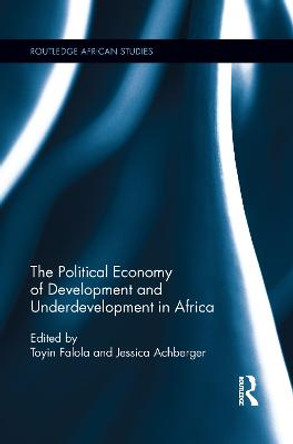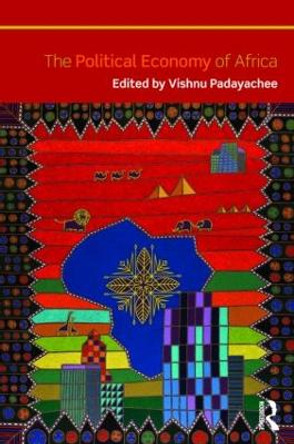Description
Based on rich oral histories, this is an engaging study of citizenship construction and practice in Liberia, Africa's first black republic.
About the Author
Robtel Neajai Pailey is Assistant Professor in International Social and Public Policy at the London School of Economics and Political Science (LSE). A Liberian academic, activist, and author, she was previously Mo Ibrahim Foundation PhD Scholar at SOAS, University of London, and Leverhulme Early Career Fellow at the University of Oxford. Her core areas of research and policy expertise include the political economy of development, migration, race, citizenship, conflict, post-war recovery, and governance.
Reviews
'Pailey has broken new ground, creating the first in-depth scholarly examination of Liberian citizenship. Her engaging interdisciplinary study draws on over 200 interviews with Liberians and the diaspora to examine the 'political economy of belonging'. An invaluable contribution to the literature of citizenship and dual citizenship in Africa.' Bronwen Manby, London School of Economics and Political Science
'In a global context of growing ferment in citizenship, Pailey's brilliant historical and socio-anthropological account of the politics of belonging in and to Liberia exposes the games of power and privilege in claims, denials and contestations of citizenship and its materialisations.' Francis B. Nyamnjoh, University of Cape Town
'Pailey combines an in-depth understanding of Liberian society, politics, and economy that only an insider can possess with the thoroughness, nuance, and rigour of the best kind of outside academic research. The result is an analysis of identity and citizenship in Liberia that is as illuminating as it is convincing.' Severine Autesserre, Barnard College, Columbia University
'Pailey weaves together theory, interviews and reflections from her own experiences navigating Liberia and the diaspora, bringing a richness to the discussion that makes the book accessible to a broad audience.' Beth Elise Whitaker, University of North Carolina at Charlotte
'Robtel Neajai Pailey is prominent among a new cohort of young African scholars who are reinvigorating the way we look at African societies, diasporas, mobility, conflict and citizenship.' Nicholas Van Hear, University of Oxford
'Pailey's account of the Liberian story brings a fresh analysis to global development both in terms of the nation state itself, and the question of who decides development policy. This book is essential reading not only for political scientists and historians of African colonisation, but also for development policy makers and practitioners on how the voices of the diaspora should not be privileged over and above local voices, if tension and conflict are to be avoided.' Patrick Kilby, Development in Practice
'This fascinating and innovative book is a must-read for researchers and policymakers working in the fields of migration, citizenship, diasporas and development as it offers fresh and alternative perspectives beyond traditional Eurocentric and Westphalian notions of citizenship.' Fulya Felicity Turkmen, The Washington Post
'In this book, Pailey presents a fascinating and comprehensive overview of contestations over dual citizenship and the political economy of belonging in Liberia. The book broadens our understanding of citizenship and identity in the Liberian state as well as Africa more broadly through tracing the history of citizenship and displacement in Liberia as well as the tensions between what the author regards as homelanders (those in Liberia) versus diasporans (the wider Liberian diaspora in proximate countries and further afield).' Thabani Mutambasere, International Migration Review
'For a continent that too often sees its conflicts and subsequent post-conflict solutions reduced to regional, ethnic or religious identities, Pailey's book is a refreshing and nuanced take on post-war peacebuilding. It illustrates that citizenship is not just a question of identity, nor is it a stagnant set of legal rights and privileges. Instead, it is constantly reconstructed and renegotiated through life experiences of Liberians that are shaped by the structural inequalities that impact the country and more broadly the African continent today.' Baindu Kallon, Review of African Political Economy
'Robtel Pailey's compelling study of dual citizenship in Liberia touches on a question that is not only timely and relevant but also contested in many countries across Africa and beyond: how to (re-)frame discussions on citizenship in countries where large segments of the population are (temporarily) living outside of the national border but express belonging to their homeland. ... this is an important contribution to our understanding of how citizenship is constructed in West Africa and beyond. What is more, the book is well written and accessible. The way the chapters are set-up makes it well suited for educational purposes in a number of academic disciplines such as anthropology, history, or political science.' Maarten Bedert, African Studies Review
'Robtel Neajai Pailey has made a significant contribution to the literature on the politics of citizenship and belonging in Africa. The book is exemplary in its masterful combination of rich qualitative analysis and careful historical narrative. Its detailed and highly accessible methodological, theoretical, and biographical reflections make it an excellent resource for both undergraduate and postgraduate students. Scholars with varying specialties, including citizenship, transnationalism, and post-war recovery would find much of value in this book, as would policy makers grappling with the thorny issues of dual citizenship and diasporic engagement.' Kofi Takyi Asante, Global Citizenship Observatory
'In her rich and engaging book Development, (Dual) Citizenship and Its Discontents in Africa: The Political Economy of Belonging to Liberia, Pailey takes us along a journey to discover why in Liberia the contestation of dual citizenship acceptance turned into a 'tug of war' (p. 108) between economically powerful transnationals pushing to expand their rights and homelanders pushing for socio-economic transformation. Pailey provides both an original narrative around three historical and contemporary factors - conflict, migration and post-war recovery - that structure dual citizenship contestation in Liberia, as well as an empirically informed warning to politicians and diaspora communities pushing for liberalisation that at least in the Liberian context, 'radical changes' are needed to mitigate resistance to dual citizenship (p. 227).' Maarten Vink, Global Citizenship Observatory
'Development (Dual) Citizenship and Its Discontents is a significant contribution in thinking about the ways in which Liberians in-country and the diaspora conceive of citizenship, how their contemporary constructions of Liberian citizenship deviate or cohere according to their lived experiences and socio-economic positions, and how they practise citizenship in the everyday. With rich qualitative data and analyses, the book is a wonderful contribution to the extant literature on politics and citizenship, particularly when considering its relational, spatial and temporal aspects. It is a work that is accessible beyond academic circles in and enlivened by Pailey's unique and engaging tone. It is a timely and important piece of work that deserves deep and wide engagement.' Sibongile Zulu, Global Policy
Book Information
ISBN 9781108812528
Author Robtel Neajai Pailey
Format Paperback
Page Count 295
Imprint Cambridge University Press
Publisher Cambridge University Press
Weight(grams) 400g
Dimensions(mm) 229mm * 152mm * 16mm




